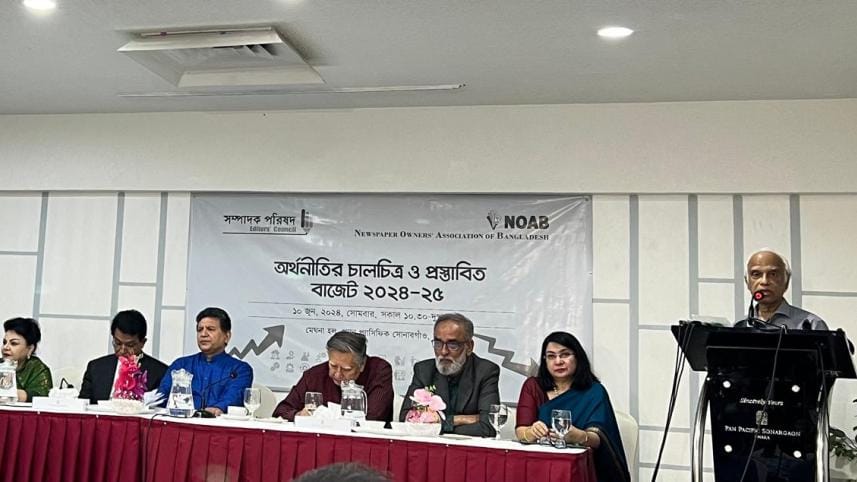Recovery from crisis impossible without addressing banking sector’s vulnerability

Economists today expressed deep concerns over the current situation in the banking sector of Bangladesh and warned that the recovery from the current economic crisis would not be possible without addressing the sector's vulnerability.
"The banking sector is the most sensitive sector of an economy. But it is today left uncontrolled and unprotected," said Wahiduddin Mahmud, a noted economist.
He spoke at a discussion on the proposed budget for the fiscal year 2024-25 at the Pan Pacific Sonargaon hotel in Dhaka.
The Editors' Council and the Newspaper Owners' Association of Bangladesh (Noab) organised the event. Mahmud, also a former finance adviser to a caretaker government, said several fault lines have been visible for quite some time. One of the weaknesses is low revenue collection.
"Reform in this area has been neglected," he said, adding that the dependence on borrowing from local and foreign sources remains.
"If this continues, there is a risk of the budget falling into a debt trap," he said, adding that there is a widespread waste in public expenditure.
"An atmosphere of confidence has not been created in the economy. We see an unbridled circulation of black money in the economy and capital is flying out of the country."
Fahmida Khatun, executive director of the Centre for Policy Dialogue (CPD), said the situation of the banking sector is becoming weaker from weak, with many depositors complaining that they cannot withdraw their money.
She said the Banking Company Act has been amended to serve the interests of the vested quarters and new formulas have been devised to reschedule loans.
Hossain Zillur Rahman, executive chairman of the Power and Participation Research Centre, Salehuddin Ahmed, a former governor of the Bangladesh Bank, and Ahsan H Mansur, executive director of the Policy Research Institute of Bangladesh, also spoke.



 For all latest news, follow The Daily Star's Google News channel.
For all latest news, follow The Daily Star's Google News channel.
Comments